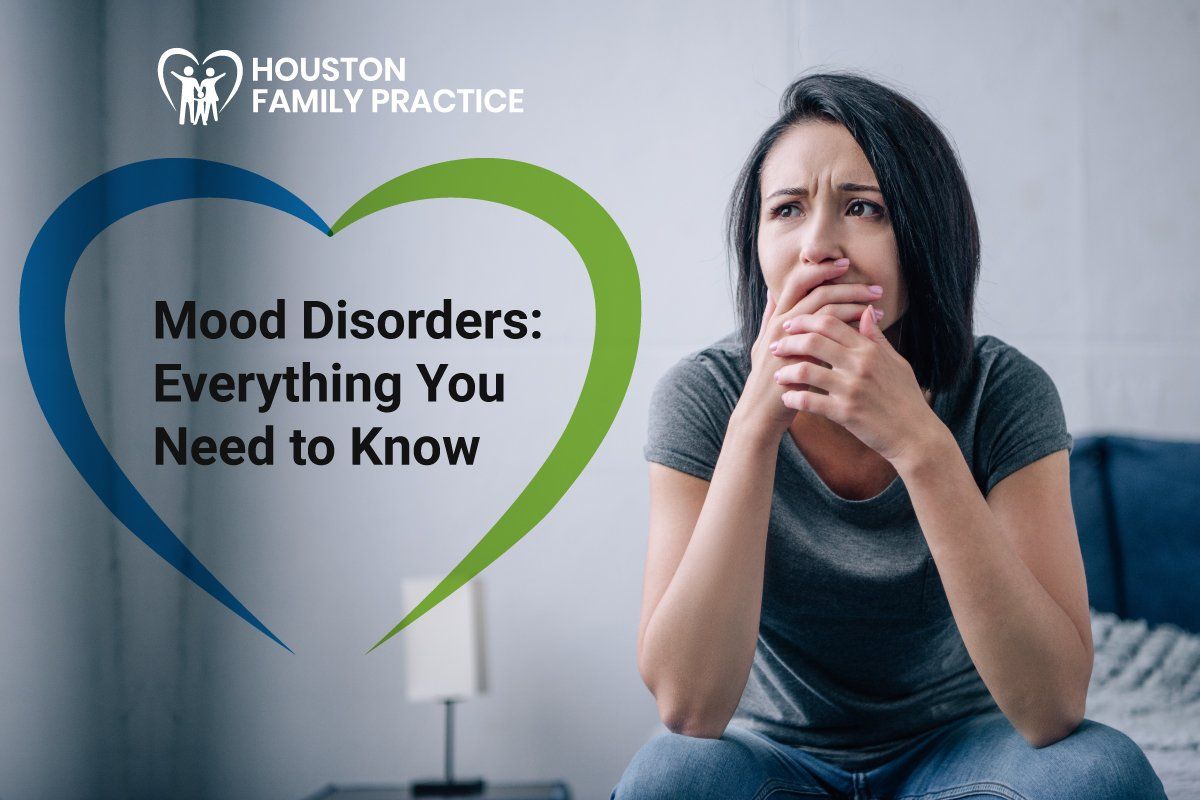Overview
What is a mood disorder? Generally, mental health professionals use the term "mood disorder" to describe depression and bipolar disorders. The word also basically describes all forms of depression and manic-depressive disease.
Your emotional state or mood may be unbalanced or inconsistent with your circumstances if you have a mood disorder. The condition may interfere with your ability to function normally.
The conditions have no apparent cause. However, doctors think chemical imbalances cause them in the brain, and other factors also play a role.
Mood disorders are more severe than mere depression and last for a more extended period.
They are also more challenging to handle than the common sentiments of grief that one could experience.
These ailments should not be confused with mood swings disorders because they differ in timing and severity. Anxiety mood disorder is also different from mood disorder because it may affect an individual's mood but is not directly related to mood.
Regarding this illness, we can talk about everything you need to know. So, in this article, we will talk about the different types and symptoms. We'll discuss who's most likely to be affected by this condition and how you can treat the disease.
Mood Disorder Symptoms
Problems with daily functioning are common symptoms of mood disorders. This condition also results in emotional disorders. Mood disorders come in a wide variety, potentially devastating consequences for daily functioning. Examples of possible symptoms are:
- A feeling of isolation, sadness, hopelessness, and worthlessness
- Disinterest in once-enjoyed activities
- Anxiety
- Unusual eating
- Sleeplessness or oversleeping
- Fatigue
- Crying
- Uncaring or feeling "flat."
- Concentration problems
- Decision-making issues
- Guilty feeling
- Easily gets irritable
- Suicide/death thoughts
It is a problem when these feelings last long or get in the way of enjoying family, friends, community, or work. When someone displays suicidal thoughts, they should seek immediate medical attention.
The Different Types of Mood Disorders
There are different mood disorders, even though they are all mental illnesses that cause emotional problems. The most popular types of mood disorders are the following:
- Major Depressive Disorder (MDD) - signs of mood disorder manifest when you feel extremely sad for a long time and don't go away.
- Depression caused by another medical condition
- is a persistent feeling of sadness and a loss of pleasure in most activities. This is because the other medical condition's physical effects make the person feel bad.
- Bipolar Disorder - when a person has this condition, they have episodes of depression followed by periods of mania or a higher mood. It is also called an
affective disorder.
- Disruptive Mood Dysregulation Disorder - is a type of irritability that lasts for a long time and is very bad. Children with this disorder often have frequent temper tantrums that are out of line with their age.
- Seasonal Affective Disorder (SAD) - is a type of depression that usually happens when there are fewer daylight hours in the far north and south.
- Cyclothymic Disorder
- is a mental illness that causes less intense emotional highs and lows than bipolar disorder.
- Premenstrual Dysphoric Disorder - is when a woman's mood changes and she gets angry before her period. These feelings go away when the period starts.
- Persistent Depressive Disorder, or Dysthymia - This is one of the mental illnesses included in a mood disorders list. This ailment is a form of depression that lasts for a long time.
- Depression induced by drugs or medicine - is when depression symptoms appear during or soon after drug use or withdrawal or after taking a medication.
Who Is Prone to Mood Disorders?
The condition can affect anyone, and the cause of mood disorders also differs. Those who have a parent with a mood disorder increase the likelihood that a child, teenager, or adult would have a mood problem themselves. Sadness and despair are normal human emotions, but life stress can bring them out or make them worse. This makes it harder to deal with the feelings.
The difficulties of life might lead to depression. Life can be challenging if you deal with the stress of losing a job, getting divorced, a loved one passing away or experiencing financial difficulties. Negative emotions, such as melancholy, despair, or difficulty controlling a mood disorder, might result from these situations and stresses.
How to Treat Mood Disorders
There are no current strategies to prevent or lessen the occurrence of mood disorders. On the other hand, early diagnosis and treatment can reduce the severity of symptoms, help the person grow and develop normally, and improve the quality of life. Fortunately, mood disorders can often be treated with success.
Mood disorders are typically treated with antidepressants and anti-anxiety medicines. Even with medications, though, most people who work in mental health recommend that they be used along with psychotherapy.
Psychotherapy changes mental processes and behaviors. The standard treatment for this illness is
Cognitive Behavioral Therapy (CBT). In some circumstances, psychotherapy alone can treat a mood problem. Bipolar depression is treated with lifelong mood stabilizers and psychotherapy.
Some mental disorders may require hospitalization if the patient has tried to harm themselves or others or has suicidal thoughts or attempts.
When to Seek a Doctor's Help?
Aside from displaying suicidal thoughts, if you manifest mood disorders, visit a doctor or mental health expert. Your mood condition won't go away on its own and may worsen.
We at
Houston Family Practice would love to assist you because we believe it's easier to address mood disorders early on. You can hit the highlighted link to book an appointment.














